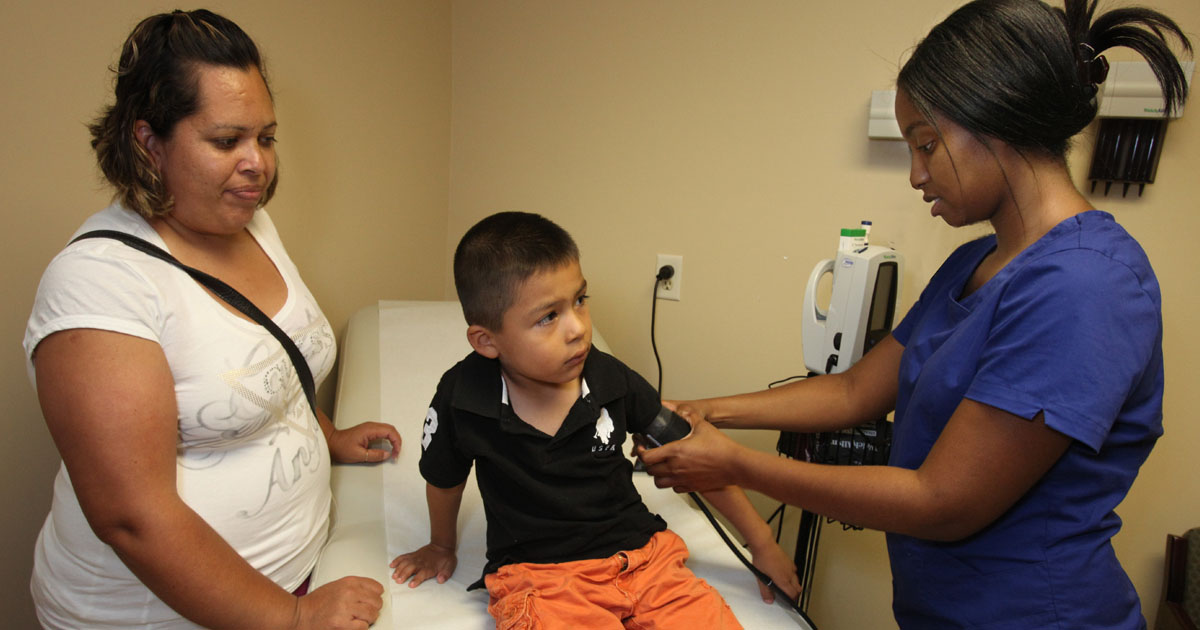Health Systems as Places of Sanctuary

By Seth Holmes (Associate Professor, UC Berkeley), Anita Berlin (Barts and the London St. Mary's School of Medicine), Fabian Fernandez (University of California San Francisco), Deliana Garcia (Migrant Clinician's Network)
As primary care physicians and public health professionals working in the US and UK, we welcome the editorial by Saadi and McKee (1). We have an unique opportunity to bolster one another across the Atlantic as we experience related structural challenges. We believe that the practice of ‘hospitals as sanctuary’ should be extended to the entire healthcare system to ward off the restriction of services, the introduction of the technologies of charging, and the unwitting participation of health professionals in detention and deportation.
First, the NHS must provide comprehensive care for all. Although primary care remains free to all registered patients in the UK regardless of immigration status, restrictions on migrants have prohibited referrals to specialty services (including mental health). This policy places GPs in impossible positions where they cannot fulfil their duties. It acts against evidence-based medicine and the professional imperative to provide the best available healthcare to all who need it.
In the US, practitioners are all too familiar with inadequate coverage and unequal access to healthcare. Seeing patients fall through gaps and even die of treatable conditions is all too common in the fragile, incomplete ‘safety-net’ of student-run clinics, non-profit networks, and pro bono specialists performing acts of corporate social responsibility. The UK would do well to avoid drifting towards a similar patchwork of fragmented care and instead demand comprehensive care for all through the NHS.
Secondly, the new technologies of charging in the NHS should alarm us. We have been told that the Immigration NHS Surcharge linked to visa applications guarantees access to all services, provides revenue, and protects the NHS from abuses by so called "health tourists." This framing legitimises access for migrants with visas, but also necessitates mechanisms for charging migrants without up-to-date documents (a complex mix of people who have over-stayed their visas, domestic and care workers, former students, rejected asylum seekers, victims of trafficking/slavery, and unregistered children of migrants). This marks the establishment of massive financial machinery now cranking into place in every hospital that involve patient profiling, invoicing, payment collection, and debt recovery. Now that the NHS charges one group in specific settings, we must be wary that they may consider charging anyone, anywhere. In the UK, charging one small, structurally vulnerable sector of society for specialty care threatens the entire NHS project built to provide universal healthcare coverage with coexistent, articulated primary and secondary care.
Finally, health systems must be kept separate from immigration control. In the UK, much damage has been done through electronic data harvesting from the NHS GP register by the Home Office. In the US, the rhetoric of “public charge” threatens immigrants’ future possibilities for regularisation and the escalating climate of fear for immigrants prevents people from accessing health services (2). On both sides of the Atlantic, the threat of healthcare aiding immigration control leads to poor prenatal care (3), fragmented treatment of chronic diseases (4), and the unnecessary spread of infectious disease (5).
Physicians in the US and UK have taken oaths to “do no harm.” Health professionals must practise free from political interference dressed up as legal obligation or financial benefit. We must provide health care without inadvertently criminalising our patients. The recent restriction on data sharing in the UK is evidence that collective resistance by health workers can be powerful and successful.
As argued by Saadi and McKee, hospitals should always be places of sanctuary in which healthcare is not selective nor wrapped up in law enforcement. Yet, we need to think more broadly. The rhetoric of the “hostile environment” is being mobilized to dismantle the hard-fought efforts of the Affordable Care Act (ACA) in the US and the UK National Health Services (NHS) . Learning across borders, we must fight for ‘sanctuary systems’ that provide healthcare for us all.
References:
(1) Saadi, Altaf, and Martin McKee. "Hospitals as places of sanctuary." (2018): k2178.
(2) Martinez, Omar, et al. "Evaluating the impact of immigration policies on health status among undocumented immigrants: a systematic review." Journal of Immigrant and Minority Health 17.3 (2015): 947-970.
(3) Levitt, Ryan, et al. "932: Words Matter: Measured Impact of Political Rhetoric on Timely & Regular Access of Prenatal Care Among Latino & Hispanic Women in Houston, Texas from 2011-2017." American Journal of Obstetrics &Gynecology 218.1 (2018): S551-S552.
(4) Page-Reeves, Janet, et al. "Health disparity and structural violence: How fear undermines health among immigrants at risk for diabetes." Journal of health disparities research and practice 6.2 (2013): 30.
(5) Dang, Bich N., Thomas P. Giordano, and Jennifer H. Kim. "Sociocultural and structural barriers to care among undocumented Latino immigrants with HIV infection." Journal of Immigrant and Minority Health 14.1 (2012): 124-131.
Like what you see? Amplify our collective voice with a contribution.
Got some good news to share? Contact us on our social media pages above.
Return to the main blog page or sign up for blog updates here.
- Log in to post comments
